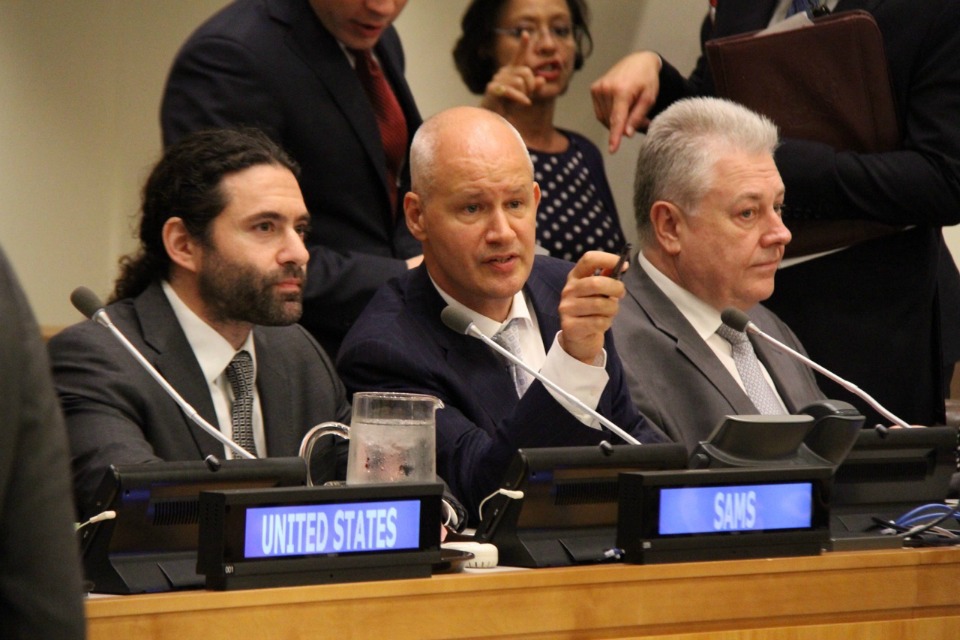"The Syrian regime has not honoured the agreement that it made to let aid in"
Remarks by Ambassador Peter Wilson, UK Deputy Permanent Representative to the United Nations at the Security Council Arria-Formula Meeting on Aleppo Under Siege

Thank you Samantha. Look, I am not going to speak for long and frankly after hearing all of that, it’s almost hard to speak at all. I do want to say on behalf of my government, thank you. I want to thank the speakers who have given so much and who continue to give so much. I want to say a big thank you to Dr. Sahloul, Dr. Attar for what you’ve shared with us. It was extremely hard to sit through what you have just shown us. I also want to thank Abdullah Kawlhla for the testimony that he gave with guns playing in the background. And I want to thank you Clarissa as well for the witness you have borne and the message you have given us. It couldn’t have been clearer.
Which is why I recognize that thanking you is frankly not enough. The question before us as a Security Council is ‘are we doing enough?’ and the answer frankly is no. The answer is no because we have heard that humanitarian conditions which have been frankly dreadful since 2012 and before, that they are deteriorating at an alarming rate.
The answer is no because the Syrian regime has not honoured the agreement that it made to let aid in as part of the UN convoy plan. And the answer is no because there is a systematic attack on medical facilities and other civilian infrastructure going on. We’ve heard about it just now in July. Those statistics are appalling. Eastern Aleppo, 15 hospitals attacked.
So the question is what can we do about it? First of all there has to be a stop to the fighting, a stop to the bombing. That’s the first thing that must happen. The second thing is humanitarian access has to be complete and it has to be immediate. That is not happening. And the third thing is the regime and its allies need to honour the promises that they have made.
So stopping bombing, letting aid in, and stopping the destruction of medical supplies and medical facilities, these have to be the very basic minimum of what we do now. And without that, frankly, it is impossible to see how the politics can progress. We’re all agreed that nobody can win. We’re all agreed that the only thing that can be done now is a political solution. Nobody wants to set preconditions for that political solution, but it’s just a matter of political will and political arithmetic that with all this going on in front of us, it is hard to see how we make progress.
I think the panellists here have show today that they have done their part. I think now the question for us is what can we do and how do we play ours?